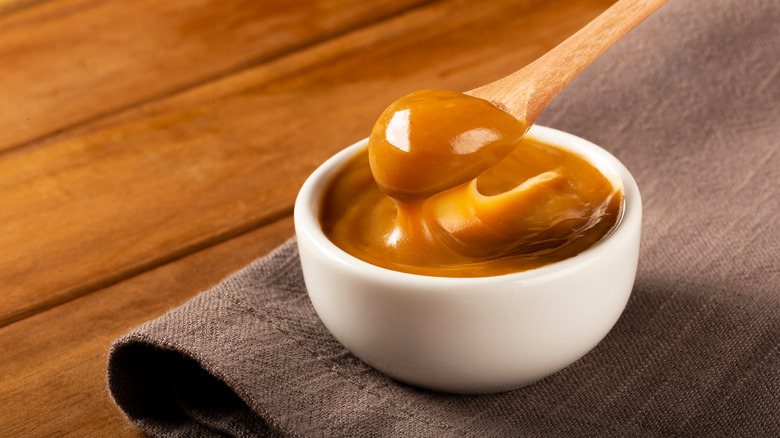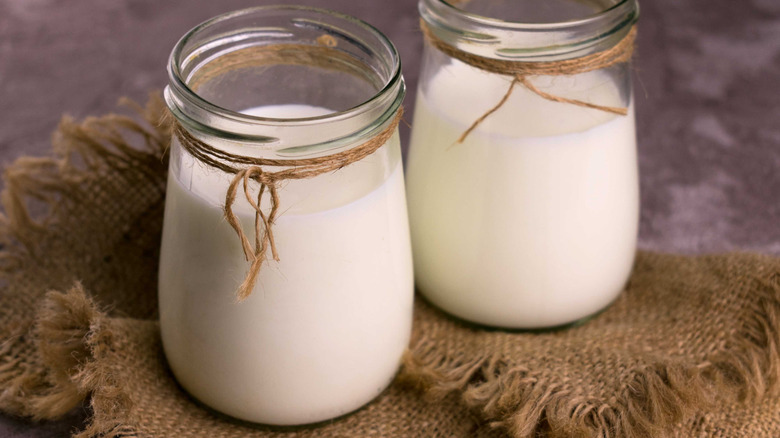Goat Milk Is The Unexpectedly Flavorful Complement To Caramel
Making homemade caramel might sound intimidating, but don't let the candy thermometer scare you. You can even make caramel in the microwave. Here's another potentially intimidating proposition that shouldn't scare you: Whether or not you're a stranger to baking with goat milk, goat milk is no stranger to the dessert world. It's used in ice cream, pound cake, blondies, tarts, cornbread, and more — and it's the secret ingredient your caramel has been missing. Tangy goat milk can rescue caramel's sometimes sickeningly-sweet profile with one simple ingredient swap.
Texturally, goat milk tends to be thicker and creamier than cow milk (which can also benefit your caramel). Its fat globules are also marginally smaller, making goat milk easier to digest while retaining the milkfat responsible for achieving rich textures in the confectionery world.
In baking, goat milk's flavor shows up sweeter than cow milk. Its characteristically strong, sometimes gamey taste comes from caproic acid, which, along with two other fatty acids (caprylic and capric), is found in higher amounts in goat milk — all three together roughly 15-18% of the total fat content versus comprising 5-9% of the fat content in cow milk, per a 2021 study in Nutrients. But when incorporated into a treat like caramel, goat milk's strong flavor is substantially minimized compared to when it's enjoyed in a glass or in goat milk cheese. Sugar and other flavors in the caramel remain the star of the show, with just enough savoriness from the goat milk to balance out the sweetness.
Step aside, oat milk — it's all about goat milk
To make it work for your caramel, simply swap goat milk for regular cream in your go-to homemade caramel recipe. That's it. Goat milk can even be a good fit for sweet-toothed foodies who are lactose intolerant, as it contains fewer stomach-upsetting allergens than cow dairy (via Michigan State University).
Admittedly, goat milk is something of a specialty item in grocery stores, and as such, it tends to be a little pricier and tougher to track down than cow milk. Baking with goat milk can be a great excuse to hit up your local farmers' market. But for home bakers looking for a shelf-stable ingredient, Meyenberg makes pasteurized evaporated goat milk. A 12-ounce can runs for $12 via Walmart, and some Whole Foods locations sell bottled goat milk in the dairy section — check out your local store's inventory online to be sure before swinging by.
To make the most of your newfound knowledge, try using goat milk in your salted caramel sauce for an ultra-savory finisher to brownies, pretzels, or even plain apple slices. To further extend its shelf life, you could even transform your goat milk into goat milk butter to keep on hand for future baking recipes. For added longevity, whip up a batch and freeze it; simply wrap your goat milk butter in plastic wrap and seal it in a plastic freezer bag. Stored properly, it'll last in the freezer for six months to a year.

